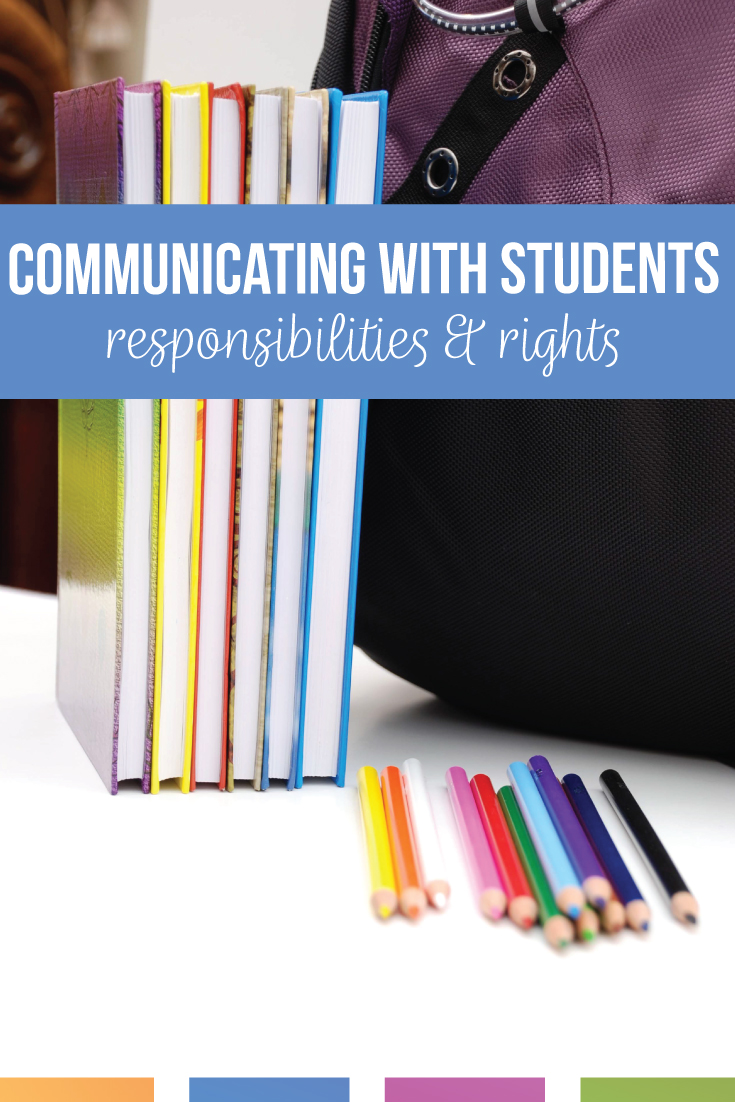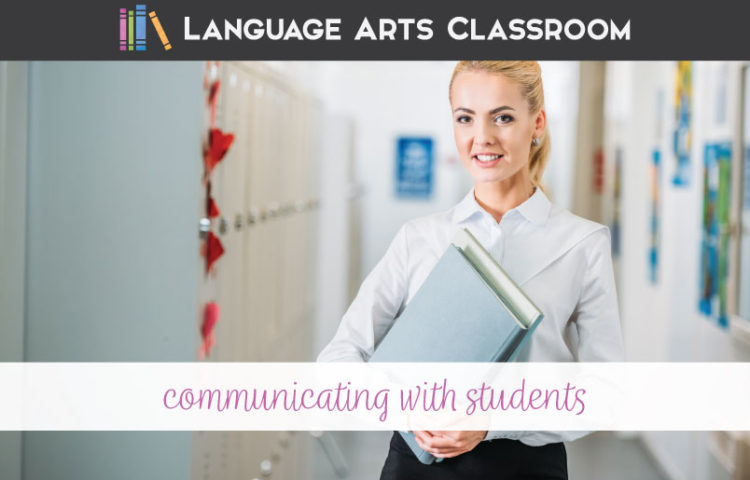Communicating with students outside of class will be a major part of your responsibility. Here are some questions to consider for those professional interactions with students.
Communicating with students will involve emails, discussions outside of class, interactions before and after school, and so much more. Those little interactions can build relationships and shape the tone of your classes.
Know that every teacher you see had similar questions and worries. Also know that the teaching field is typically compassionate and helpful—if not in your school, online. When you have questions about communicating with students, feel free to ask! Professional interactions with students are important and will add up. So!
Remember those points:
1. Every teacher has been here before, and
2. almost every teacher will be willing to help you.

Now consider these questions as you begin forming relationships with your students.
- How will you organize your papers to grade? Folders for each class are an option. Clips with labels are another. (Electronic submissions?)
- Are you using Google Classroom or a similar format? Does the time that students submit matter? (End of the class period, by midnight.)
- What will you do with no-name papers? Are you deducting points? Will you have a “no-name” folder?
- Same for late work – late work folder? Do you deduct points? Is there a school policy? Will you always accept late work?
- When will you return student work? This is largely important for work that relies on feedback and the following day’s class work.
- Will students “grade” or assess their peers’ work? (I don’t do this, but I know some school districts allow it.)
- Are students allowed to re-do work for higher grades? Is there a limit to this?
- Do you have a lunch policy? Will you eat with students, maybe in your room? Will your room be locked at lunch?
- Are students permitted to be in/ on everything in the classroom? Your computer?
- How will you communicate with students outside of class?
- Will you meet with students before school? After school?
- Will you check your email at home? Can students contact you through email, or do you prefer comments on Google Classroom? Your school’s online learning platform?
AND – you needn’t walk into class with answers for all of these. You will probably need to answer these questions at some point during your first year of teaching. You’ll develop systems and routines as your year continues. You’ll tweak and adjust. Having an awareness that communicating with students is important shows that you’re off to a great start.
This post is not the answer to everything; Hopefully though, it does provide an opportunity for thinking, reflection, and maybe researching the answers. I didn’t ponder these questions before I began teaching, and instead had to decide on the spot. For some of them, I later changed my mind and had to wait out the semester until I felt it fair to change routines in communicating with students.
Consider these ideas and start your school year prepared for communicating with students.
Are you organizing yourself before the school year begins? This organizational bundle is made specifically for secondary teachers.
Those are my six quick tips for teaching grammar. With a few changes, you should be able to use these across multiple grades.

